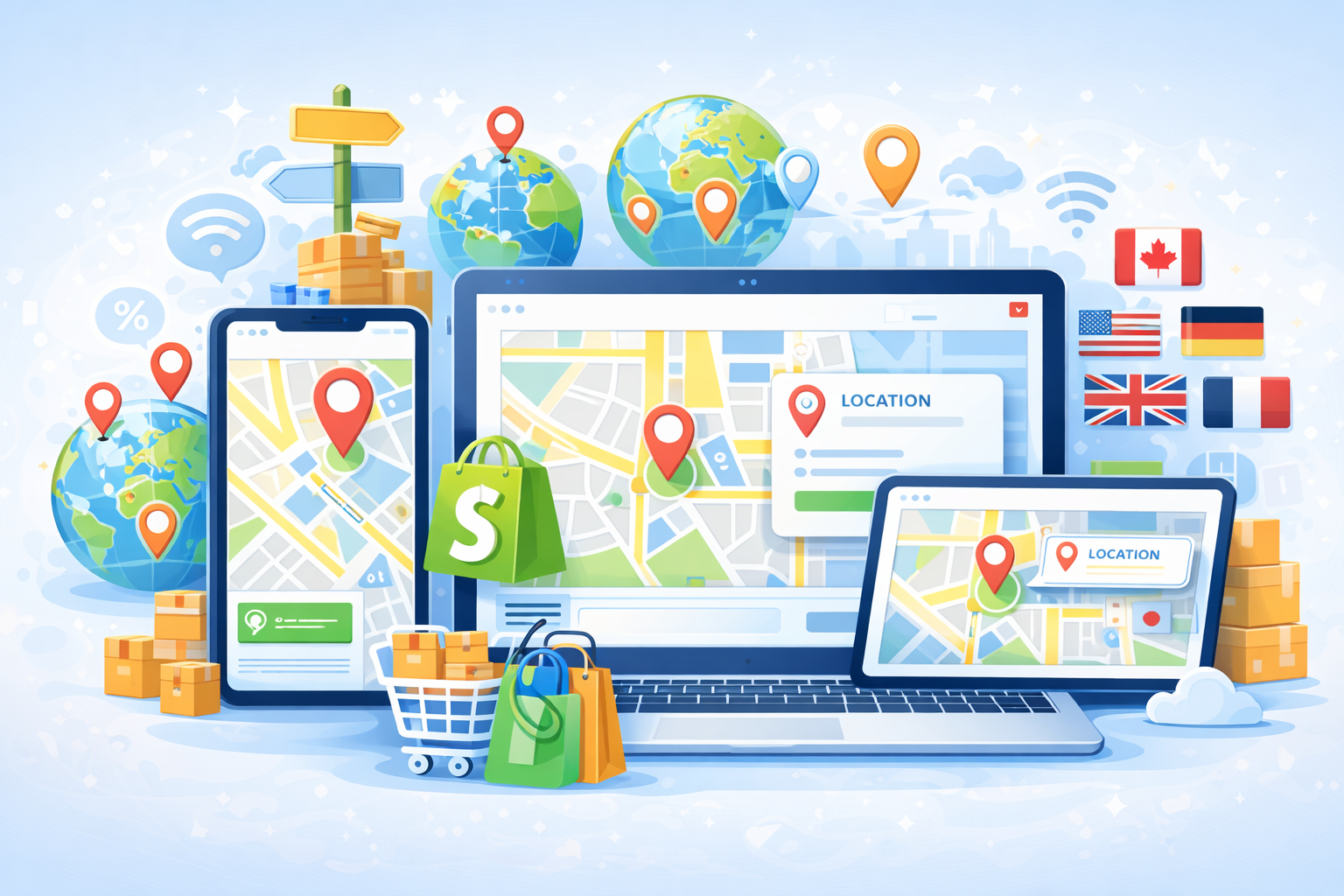Try Zipchat in Action!
Enter your store URL to see how Zipchat would behave.

In today's fast-paced business landscape, efficient customer service is crucial for maintaining a competitive edge. With the rise of automation, companies are increasingly turning to automated customer service systems to streamline their operations and deliver top-notch support to their customers. In this article, we will explore the benefits of automated customer service and discuss why businesses should embrace this innovative approach.
Understanding Automated Customer Service
Before delving into the advantages of automation in customer service, it is important to first define what automated customer service entails. Simply put, automated customer service refers to the use of technology, such as artificial intelligence and chatbots, to automate various aspects of the customer service process. This includes tasks like responding to customer inquiries, providing self-service options, and sending automated notifications.

Defining Automated Customer Service
Automated customer service involves the use of cutting-edge technologies to automate repetitive customer service tasks, freeing up valuable resources and improving overall efficiency. Rather than relying solely on human agents, automated systems handle routine customer inquiries and perform self-service functions, while human agents handle more complex issues.
Moreover, automated customer service can also encompass proactive outreach to customers, such as sending personalized recommendations based on past interactions or notifying them of upcoming promotions. By leveraging data analytics and machine learning algorithms, businesses can tailor their automated customer service strategies to individual customer preferences, enhancing the overall customer experience.
The Evolution of Customer Service Automation
Customer service automation has undergone significant evolution over the years. From interactive voice response (IVR) systems to the emergence of chatbots and virtual assistants, businesses have continually sought ways to enhance the customer service experience while optimizing costs. These advancements have paved the way for highly efficient automated customer service systems that are capable of handling large volumes of inquiries with minimal human intervention.
Furthermore, the integration of omnichannel communication capabilities has revolutionized automated customer service by allowing seamless interactions across multiple platforms, such as websites, mobile apps, social media, and messaging services. This omnichannel approach ensures that customers can receive consistent and personalized support regardless of the communication channel they choose, leading to higher satisfaction levels and improved brand loyalty.
The Advantages of Automation in Customer Service
Enhancing Customer Experience
One of the primary benefits of automated customer service is the ability to provide a seamless and personalized experience to customers. Automated systems can analyze vast amounts of customer data, including purchase history and browsing behavior, to tailor responses and recommendations. This level of personalization not only enhances customer satisfaction but also improves brand loyalty.

Moreover, automation allows businesses to offer 24/7 support, ensuring that customers can receive assistance at any time of the day. This round-the-clock availability enhances the overall customer experience by providing timely solutions to queries and issues, regardless of when they arise.
Increasing Efficiency and Productivity
An automated customer service system can handle a large volume of inquiries simultaneously, significantly reducing response times. This allows businesses to provide prompt support to customers, even during peak hours. By automating repetitive tasks, such as answering frequently asked questions or providing account information, customer service agents can focus on more complex issues, resulting in increased productivity.
Furthermore, automation streamlines the workflow within customer service departments by automating ticket routing and categorization. This ensures that each query is directed to the most appropriate agent, reducing resolution times and improving overall efficiency in handling customer inquiries.
Reducing Operational Costs
Automation in customer service can lead to substantial cost savings for businesses. By implementing self-service portals and chatbots, companies can minimize the need for human agents to handle routine inquiries, thereby reducing staffing requirements. Additionally, automated systems can handle a high volume of inquiries without the need for additional resources, resulting in lower operational costs.
Another cost-saving benefit of automation is the ability to scale operations without a linear increase in costs. As customer bases grow, automated systems can easily accommodate higher volumes of inquiries without a proportional rise in expenses, making it a cost-effective solution for businesses looking to expand their customer service capabilities.
Key Features of Automated Customer Service Systems
Revolutionize Customer Service with Zipchat AI
Zipchat AI is a 24/7 multi-language AI chatbot that not only enhances sales but also automates all aspects of customer service. Available on any platform and in any country, Zipchat AI offers human-like support that seamlessly integrates into your ecommerce operations. By utilizing advanced AI technology, Zipchat AI provides immediate, accurate responses to customer inquiries, creating a more efficient and satisfying customer experience compared to traditional human support. The benefits of having such an AI chatbot include consistent support around the clock, the ability to handle high volumes of inquiries simultaneously, and significant cost savings. By automating routine tasks, Zipchat AI allows human agents to focus on more complex issues, thereby optimizing overall productivity and customer satisfaction. Discover the transformative power of Zipchat AI here or check it out on the Shopify App Store.
Chatbots and Virtual Assistants
Chatbots and virtual assistants have become increasingly popular in automated customer service systems. These AI-powered tools can understand and respond to customer inquiries in real-time, providing instant support and guidance. Chatbots are capable of handling a wide range of queries, leveraging natural language processing algorithms to understand and interpret customer intent accurately.

Moreover, chatbots and virtual assistants are continuously learning and improving through machine learning algorithms. This means that over time, they can provide even more personalized and effective responses to customer queries. By analyzing past interactions and customer feedback, these automated systems can enhance their capabilities and offer a more seamless customer service experience.
Self-Service Portals
Self-service portals allow customers to find answers to their questions and resolve issues independently. These portals typically include a knowledge base or FAQs section that provides comprehensive information on common concerns and troubleshooting steps. By empowering customers to find solutions on their own, self-service portals reduce the need for human assistance, leading to faster resolution times and higher customer satisfaction.
In addition to FAQs, self-service portals can also offer interactive troubleshooting guides and video tutorials to assist customers in resolving issues. This multimedia approach not only caters to different learning styles but also enhances the overall user experience. Customers can easily navigate through the self-service portal, accessing the information they need in a format that is most helpful to them.
Automated Emails and Notifications
Automation can also be leveraged to send automated emails and notifications to customers. These communications can include order confirmations, shipping updates, or personalized recommendations based on previous purchases. By automating these processes, businesses can provide timely updates to customers, keeping them informed throughout their journey and enhancing the overall customer experience.
Furthermore, automated emails and notifications can be personalized based on customer preferences and behavior. By analyzing customer data and interactions, businesses can tailor their communications to each individual, making them more relevant and engaging. This level of personalization not only strengthens customer engagement but also fosters brand loyalty and long-term relationships with customers.
Implementing Automated Customer Service
Choosing the Right Automation Tools
Implementing automated customer service requires careful consideration of the available options. Businesses should evaluate their specific needs and choose automation tools that align with their objectives. It is essential to select tools that offer a seamless integration with existing systems to ensure a smooth transition and maximize the effectiveness of automation.
When selecting automation tools, businesses should also consider scalability and flexibility. As the business grows, the automation tools should be able to accommodate increased customer inquiries and adapt to evolving customer service needs. Additionally, choosing tools with advanced analytics capabilities can provide valuable insights into customer behavior and preferences, allowing for personalized and efficient interactions.
Training Staff for Automation Transition
Transitioning to automated customer service involves training the customer service team to work collaboratively with automated systems. Agents should be familiar with the automation tools and understand how to effectively handle inquiries that require human intervention. Ongoing training and support are crucial to ensure a successful implementation and seamless customer experience.
Furthermore, fostering a culture of continuous learning within the customer service team can enhance the effectiveness of automation. Encouraging agents to provide feedback on the automation tools and processes can lead to valuable improvements and optimizations. By involving the team in the transition process, businesses can ensure a smoother integration of automation into their customer service operations.
Measuring the Success of Automation
Once automated customer service systems are in place, it is important to measure their success and make necessary adjustments. Key performance indicators (KPIs) such as average response time, customer satisfaction ratings, and resolution rates can provide valuable insights into the effectiveness of automation. Regular monitoring and analysis enable businesses to identify areas for improvement and continuously refine their automated customer service strategies.
In addition to traditional KPIs, businesses can also leverage customer feedback and sentiment analysis to evaluate the impact of automation on customer satisfaction and loyalty. By collecting and analyzing customer feedback, businesses can gain a deeper understanding of customer preferences and pain points, allowing them to tailor their automated customer service approach for maximum effectiveness.
Future Trends in Automated Customer Service
AI and Machine Learning in Customer Service
The future of automated customer service lies in advancements in artificial intelligence (AI) and machine learning (ML). AI-powered systems will become increasingly sophisticated in understanding and responding to customer inquiries, mimicking human interactions more accurately. Machine learning algorithms will enable these systems to continuously learn and improve, providing increasingly personalized and efficient support.
One exciting development in AI and machine learning is the use of natural language processing (NLP) to enhance customer interactions. NLP allows automated customer service systems to understand and interpret human language, including slang, colloquialisms, and even emotions. This capability enables the systems to provide more empathetic and contextually relevant responses, enhancing the overall customer experience.
Personalization and Predictive Service
As customer data becomes more abundant and accessible, automated customer service systems will leverage this information to offer personalized and predictive service. By analyzing customer behavior, preferences, and historical data, automated systems will anticipate customer needs and proactively provide relevant recommendations and assistance.
Imagine a scenario where a customer contacts an automated customer service system for assistance with a product. Based on the customer's previous purchases and browsing history, the system can not only address the current issue but also suggest complementary products or services that the customer might find useful. This level of personalization not only saves the customer time but also enhances their overall satisfaction and loyalty to the brand.
The Role of Big Data in Service Automation
Big data analytics will play a vital role in shaping the future of automated customer service. By harnessing the power of big data, businesses can gain valuable insights into customer behavior patterns and trends. These insights can enable companies to optimize their automated customer service systems to deliver unparalleled support and drive customer satisfaction.
For example, by analyzing large volumes of customer data, businesses can identify common pain points or recurring issues that customers face. Armed with this knowledge, automated customer service systems can be programmed to address these specific concerns, providing quick and effective solutions. Additionally, big data analytics can help businesses identify emerging trends and preferences, allowing them to stay ahead of the curve and continuously improve their customer service offerings.
In conclusion, the benefits of automated customer service are undeniable. From enhancing the customer experience to improving operational efficiency and reducing costs, automation offers businesses a competitive advantage in today's service-centric market. As technology continues to evolve, embracing automated customer service systems will be essential for businesses that strive to meet and exceed customer expectations while driving growth and success.
Transform Your Ecommerce Experience with Zipchat AI
Ready to elevate your ecommerce customer service and boost your sales? Discover the power of Zipchat AI, the most advanced AI Chatbot designed specifically for ecommerce. Engage with your store visitors proactively, increase your conversion rates, and streamline your customer support effortlessly. Merchants using Zipchat AI experience an impressive average Chat-to-Sale conversion rate of 13.4%. Don't miss out on the opportunity to transform your online store. Start your 7-Day Free Trial today and witness the difference for yourself!








